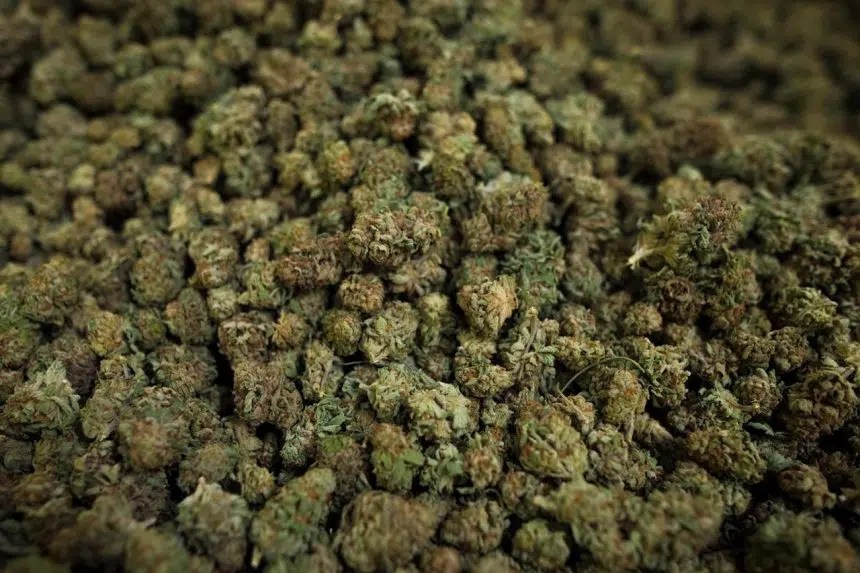It might be legal to buy pot for fun right now, but one advocate says people who use medical cannabis are struggling to get what they need.
Kelly Csada owns Kelz Medical Services in Regina, which she describes as a cannabis education centre to teach clients about options for using cannabis to treat a variety of ailments. She said that at first people coming in were very excited about legal recreational cannabis, thinking it would be easier to access a supply. Instead, she said the opposite has happened — it’s creating a distressing situation for people who depend on it for their quality of life.
“They’re unable to get their products, now that they were purchasing through the government set-up of the licensed producer online. Most of their products were sold out, shortages, not getting their parcels,” Csada said.
She explained some licensed medical producers are also selling products to recreational stores, which are running low on supply. She compared it to being told by a pharmacy that you have to wait for medication.
Csada has also had people coming in without prescriptions having been told by their doctors that it’s legal, now so they don’t need one.
“These are people that have gone back for their renewals, and some of these renewals have been years long,” she commented. “It’s still all about the education and ending the stigma that we’re using this as medicine and yes, we require a prescription.”
She also noted that many medical marijuana users don’t actually smoke it; they take it in another form such as a CBD oil. She personally uses a type of CBD oil to manage her symptoms from Chron’s disease.
“They thought whatever they were ordering online they could get from those recreational stores and mostly it’s just been the flower,” Csada said.
She explained many of the products are not available in recreational stores at all. In some cases people are taking the drastic step of searching on YouTube how to make the oil themselves in their garages, and that’s very wrong.
She would like to call on the provincial government to step up and find a way to offer medical dispensaries because the needs of patients using medicinal marijuana are very different from the recreation side, and they deserve to access proper information and private counseling like you get in a proper pharmacy.
“You go into a recreational store and you’ve got a bunch of people laughing and joking about what strain they’re going to buy to get high on a Friday night, and meanwhile you’re dealing with a chronic illness trying to figure out what to buy because they’re not allowed to tell you about the medical properties,” Csada said.
While she and other advocates are happy to see legalization of marijuana in Canada, she said it shouldn’t have to be this hard on people who are using it for medical purposes. If any 19-year-old can buy recreational pot to smoke, she asks why it should be more of a struggle to get medicinal marijuana which has been legal in Canada for so long.







